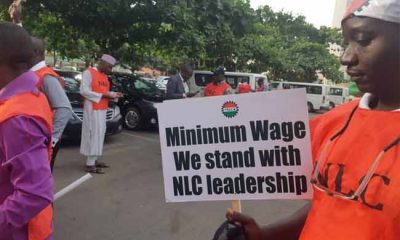Nigeria News
Nigerians Groan As Fuel Shortage Worsens … Daily Activities Increasingly Crippled
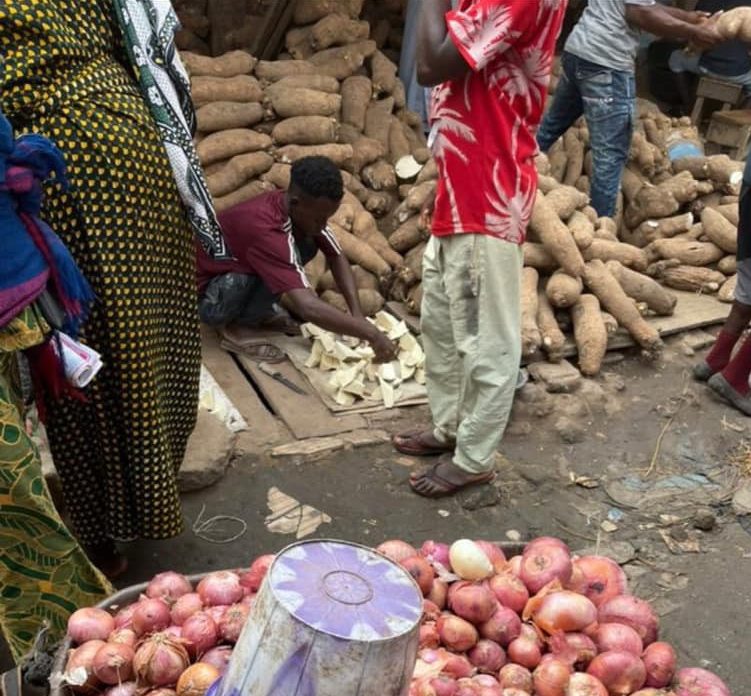
Rukayat Abdulahi, a reporter with The Informant247 in a special feature report hit the streets to investigate the havoc wrecked by fuel scarcity.
Nigerians have continued to grapple with fuel crisis, as it bites harder due to sharp drop in supply to depots across the country. This has continued to cause widespread disruption to everyday services.
Despite the country’s huge reserves and production of about two million barrels of crude oil per day, much of its fuel are imported due to a lack of refining capacity. Nigeria is dependent on imported petroleum products.
The shortage of refining capacity at existing oil refineries has placed a high subsidy burden on the government. According to reports, the subsidy programme by the government has been found to be marred with corruption, including false claims and overpayments
Recently, the Nigerian government attempted to end the subsidies. However, pressures from stakeholders – which include the labour union and student bodies – who feared an increase in petrol prices, forced the authority to retain the subsidies indefinitely.
Renewed fuel crisis
The renewed fuel crisis in Nigeria started in February, weeks after the authorities changed their stand on subsidy removal.
A statement by the Nigerian Midstream and Downstream Petroleum Regulatory Authority (NMDPRA) stated that the current shortage is due to the discovery of over a hundred million litres of imported fuel in the supply chain with methanol quantities above the country’s specifications, leading to immediate isolation and withdrawal of the product from the market.
“To ensure vehicular and equipment safety, the limited quantity of the impacted products has been isolated and withdrawn from the market, including the loaded trucks in transit,” the regulatory agency said.“The source supplier has been identified and further commercial and appropriate actions shall be taken by the authority and NNPC ltd.”
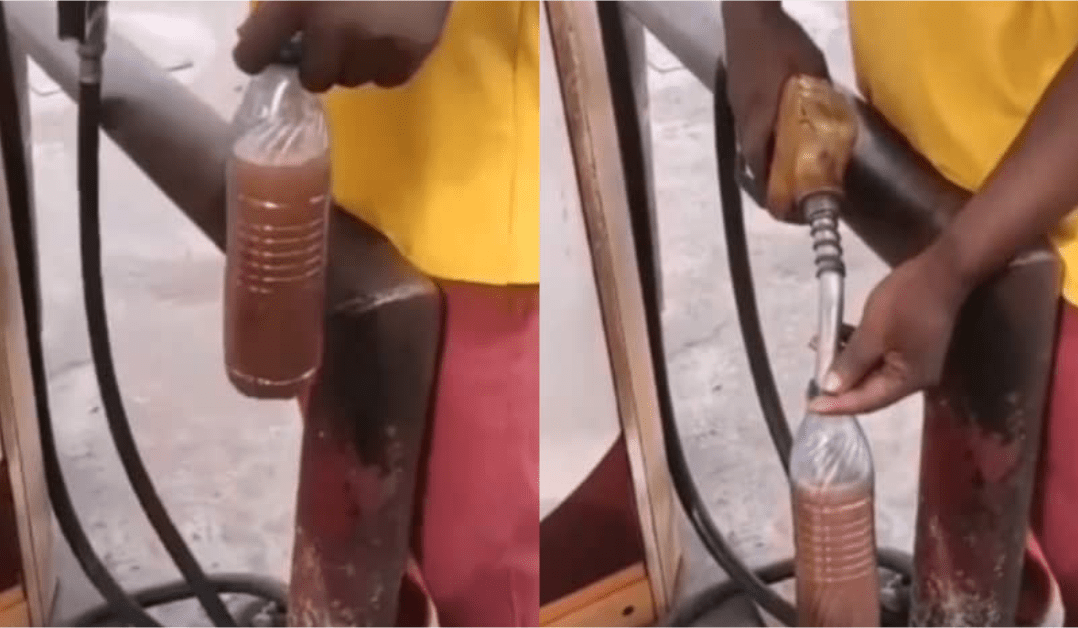
Adulterated fuel. PC: Peoples Gazette
They further assured that the NNPC has intensified efforts towards increasing the supply of petrol in the market in order to bridge supply gaps.
‘Closed in the day, opened at night’: Long queue at filling stations
However, despite repeated assurances from the authorities who insisted that there is sufficient stock of petroleum products for distribution across the country, fuel scarcity has worsened.
Motorists continued to borne the brunt of the shortages, with long queues at petrol stations in major cities, including the capital, Abuja.
In Ilorin, it was observed that only a few of the petroleum marketers who are open for business sold the product at the approved pump price of N165 per litre.
The investigation further revealed that such filling stations attracted high patronage, leading to resurfacing of long queues, where people spent several hours as they scrambled to get petrol for their cars and their electricity generators.
Some filling stations, meanwhile, had the product in stock, but they close in the daytime and open in the night to sell at prices significantly above government-controlled prices
Many motorists who spoke with the news platform said they sometimes sleep at filling stations to be able to buy the product the fixed prices.
“We used to purchase fuel at the rate of N162 before. Filling stations around now sell at N250 per litre. Since I don’t want to buy at exorbitant prices, I have to come here and queue. I have been here since last night, I slept in my car, but still, I’m yet to get the product,” said a commercial motorist who was approached by our correspondent while waiting to fuel his car at one of BOVAS outlets along Fate Road, Thursday evening.
Another motorist, Taofeeq Basit, who claimed to be a civil servant said, “We are already getting tired of this issue of petroleum. We go through a lot before purchasing the product. We queue all day, fight sometimes, run when we see soldiers coming and even starve a whole day in filling stations. If not for BOVAS and NNPC stations who sell at a normal price which is N165 per litre, we would have parked our vehicles long ago.”
Commercial transporters increase fares
Meanwhile, some commercial drivers have ascribed the rise in transportation fares to the petrol scarcity and increased in its price at some stations.
A taxi driver, who was at the filling station, lamented that they had no choice but to increase the transport fare because of the hardship they pass through in refuelling their vehicles.
“I’m a taxi driver and I can confirm to you that it has not been easy. Our passengers are complaining about the increase in transport fare and in all honesty, this is not our fault. We are selling what we buy because we also have families to take care of,” he said.
Another commercial tricyclist, who pleaded not to be named, told our correspondent that he had been at the petrol station for more than four hours.

Keke NAPEP operator narrated his ordeal in Ilorin lastweek Thursday. PC: Rukayat Abdulahi/ The Informant247
He added, “The situation is worrisome, and affected my business because I waited many hours on queue to refill my vehicle. I bought black market yesterday and I did not make any profit. There is fuel on ground but the oil marketers are hoarding it because they want the government to increase the price for them to make more money.”
He said they increased transport fares to sustain operations.
A commuter, Yusuf Ibrahim, said the shortage has caused a sharp rise in transportation costs and other services.
“I now spend N600 on transport from Sango Area to Offa Garage instead of between N200 and N150,” he said with bitterness shown all over his face.
A civil servant in one of the Kwara State Ministries, who pleaded not to be identified, said his neighbor usually helps him when going to work, adding that he paid more on other commercial transportation when going back home due to fuel scarcity.
Traders lament biting effects
For Fatimah, a trader in Ipata market, she expressed worry over the biting effect of the lingering scarcity on her business. She lamented that the crisis had started toll on her means of livelihood.
She said, “This issue of fuel scarcity is affecting us – the less privilege – so much. We no longer have enough to eat and to feed our children because we spend most of our profit on transportation. Our businesses stopped flourishing because our customers can’t risk coming to the market this period. This is getting too much for us to bear.”
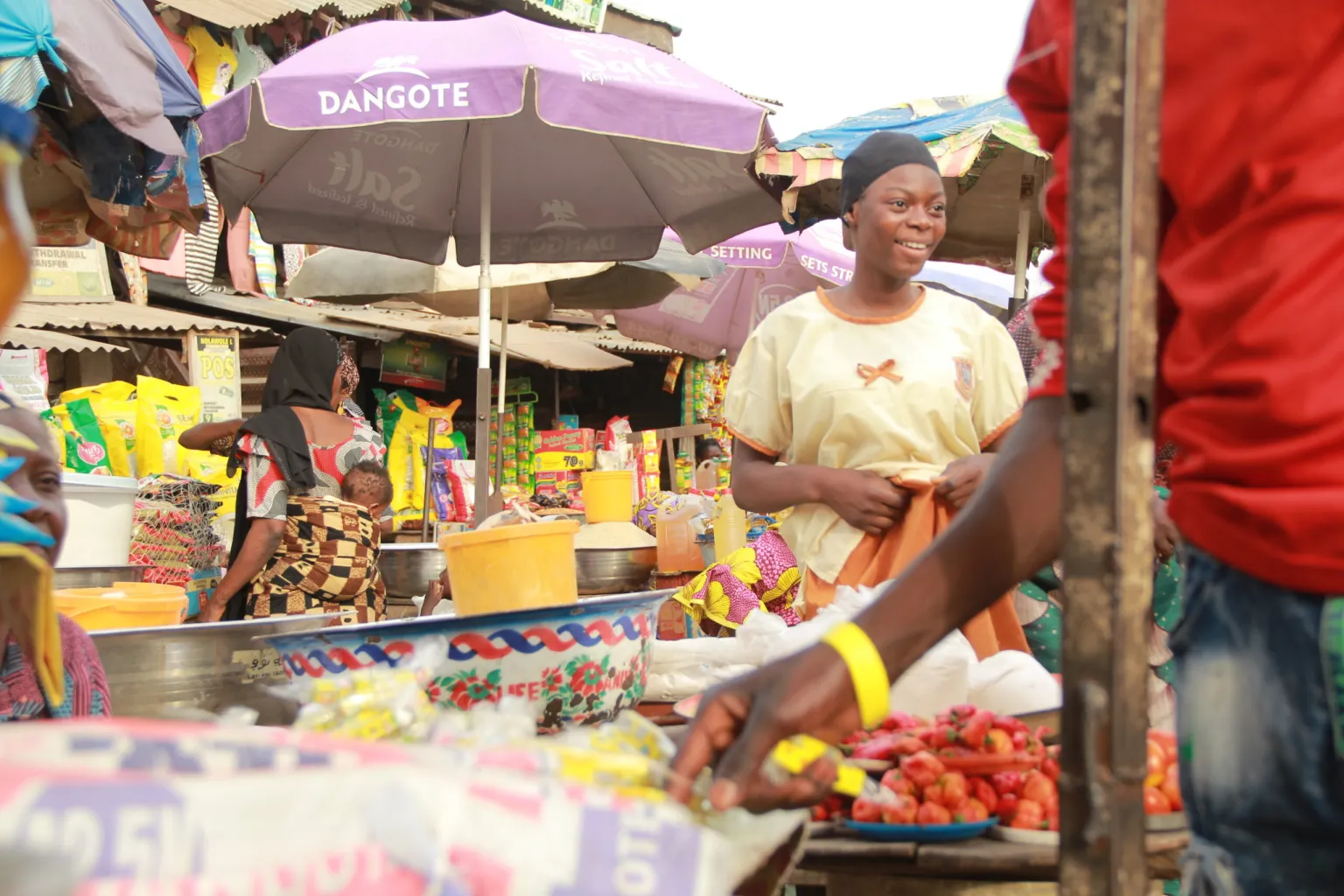
Commodities displayed at Ipata Market in Ilorin lastweek Thursday. PC: Rukayat Abdulahi/ The Informant247
Malam Garba, an orange seller at the Market, expressed sadness over the ugly situation, adding that the fuel shortage is crippling socio-economic activities in the country.
“The prices of food, transportation and many other services have seriously gone up,” he said.
A building engineer, Ayobami Adeleke who was in Ipata market to buy foodstuffs on Thursday complained about hike in price of commodities.
He said, “Ewedu that I used to purchase with N50 before has risen to N200 now. Marketers are blaming the cause on fuel scarcity. Truly, Petrol is scarce and the readily available products sell at high price. Other filling stations sell between N220 and N250 per litre. Only BOVAS and NNPC filling stations in the whole of Ilorin sell at the approved pump price.”
For Jumoke, a hairstylist, the development would only aggravate the suffering of the people.
She said, “The current scarcity of petroleum products could have led to inflation because of the vital role that the transportation sector plays in the development of the economy.”
She urged the government to take necessary steps in curbing the current hardship as the crisis is affecting the nation’s economy in general.
Business for black marketers
As the fuel scarcity bites harder with long queues seen at every station that has the products, black market vendors are cashing out at the opportunity of the brisk business.
The commodity is being displayed at various major roads where several motorists, technicians and households are patronising them.
Hotspot areas for these black market vendors include Post office, Sawmill, Surulere, Adeta, Geri Alimi, Odota, among others.
Findings revealed some of the operators are unemployed youths and artisans who abandoned their jobs to grab the opportunity of the fuel scarcity.
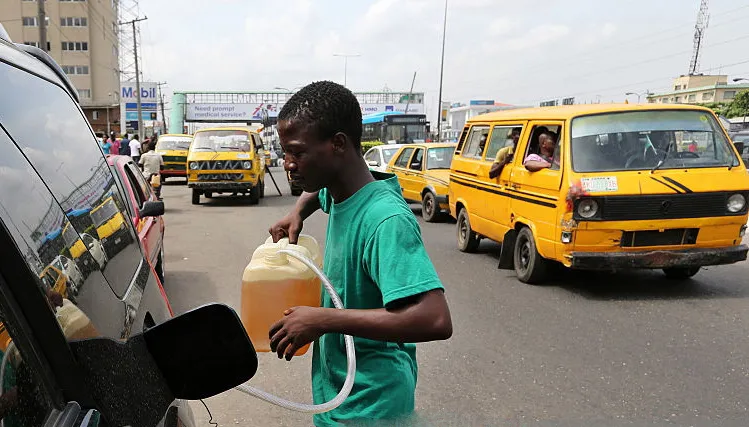
A man fills an automobile with fuel sold on the black market as others queue to buy fuel on a major road. Photographer: George Osodi/Bloomberg
One of the black market vendors at Post Office area, who pleaded not to be named, prayed for the fuel scarcity not to end as he can now go home daily with profit that is enough to feed his family.
“For me, it is a business. In the first place, I was afraid to join, but after the first trial, I was convinced it is a big and profitable business. I hope the scarcity lasts a little longer.”
When asked how much he gets petrol, he said he and his business-friends go to some filling stations in the middle of the night to get the fuel.
A five litre jerrican of the commodity is sold between ₦1,600 and ₦2,000, depending on bargain and current situation of demand by the consumers, he added.
Thus, the business continues to flourish despite threat of clampdown by security agencies.
The Kwara State Commandant of the Nigeria Security and Civil Defence Corps, (NSCDC), Mr Makinde Ayinla had in late February warned black marketer vendors and filling stations against worsening the fuel scarcity situation.
Ayinla who said the corps had made efforts to checkmate stations who selling fuel above the recommended pump price, added that it would clampdown on those “buying the products inside kegs and selling at exorbitant prices to the general public”.
Olalekan, a taxi driver, hinted that, in spite of threats, fuel stations are hoarding the product to sell to black marketers who in turn sell to consumers at exorbitant prices.
He said that the scarcity of fuel and the activities of black marketers have affected his business negatively.
He added that he has to increase prices to meet with the current situation, adding, “I now charge N500 and above for places I use to charge N200 due to fuel scarcity.”
He said that this was because he could not get fuel and had to queue at the filling stations for days without getting the product.
“I resulted into buying from the black marketers who sell a litre of fuel for ₦2,000,” Olalekan said.
He appealed to the Federal Government to urgently arrest the situation which, he noted, had affected the socio-economic activities of the country.
Scarcity pushes Nigeria’s inflation rate to 15.7%
The National Bureau of Statistics (NBS) in its consumer price index report said Nigeria’s inflation rate changed direction in February as it rose 15.7% from 15.6% recorded in the previous month. This represents a 0.1% point increase compared to the rate recorded in January 2022.
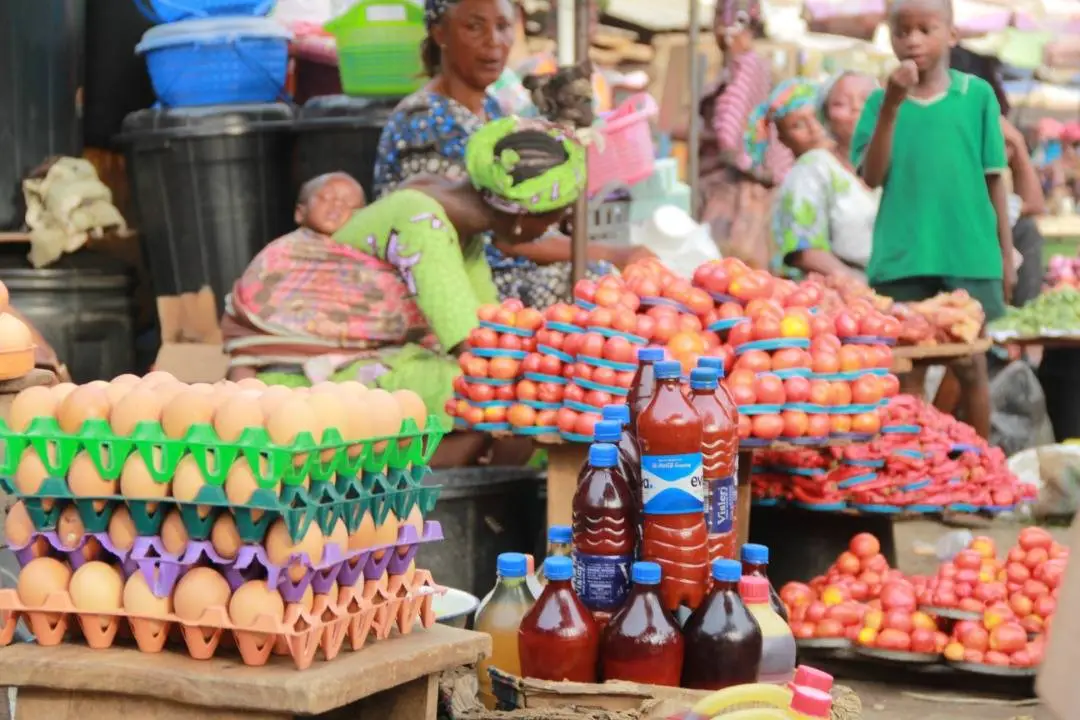
Commodities displayed at Ipata Market in Ilorin lastweek Thursday. PC: Rukayat Abdulahi
The uptick in the country’s inflation rate is said to be connected with the increase in the price of goods and services, owing to the ripple effect of fuel scarcity on cost of transportation and operation cost, amongst others.
Core inflation also rose to its highest level in over 4 years at 14.01%, according to the report.
‘Food scarcity looms’
Also, the All Farmers Association (AFAN) has warned that the nationwide lingering fuel scarcity will likely affect dry season farming in the state.
The Jigawa State chairman of the farmers’ body, Alhaji Maiunguwa Jaga, was quoted as saying by Nigeria’s news agency.
Jaga, according to the report said, that most of the dry season farmers depended on pumping machines to pump water to their farms.
“I’ve been receiving calls since yesterday (Sunday) from farmers who have already planted but expressing fears that they cannot afford to buy fuel for their water pumps.
“For those that use gas, it now costs between N500 and N600 per litre, while those who use petrol now pay about N255 per litre. This means that we will be running at a loss and cannot afford it,” Jaga said.
He explained that the association would wait for three more weeks to see what the government would do to ensure that fuel became available and affordable.
He expressed the fear that if proactive measures were not taken there would be food scarcity as well, which would result in a higher cost of food than we are witnessing now – since farmers would be unable to produce.
“If the price of the fuel decreases that would be fine. However, we will wait for the next three weeks to see the effort the government would make about the development.
“After that time, then we make our stand known through the media. This is because if the farmers are not able to farm, then there will a scarcity and high cost of food,” the chairman said.
NLC’s stand
The country largest workers’ body had in February condemned the fuel across the country, saying it exposed millions of Nigerians to great hardship.
The body’s President, Mr Ayuba Wabba, said, “We understand that the current situation is as a result of petroleum products hoarding.
“We call on all petrol marketers to show sensitivity to the difficulties being faced by generality of Nigerians and ensure prompt discharge of petrol to consumers
“We also call on relevant regulatory whencies of government to rein in the activities of unscrupulous petroleum products marketers, who go devilish miles to make dishonest gains and at the detriment of their fellow citizens.
“We also state that this situation reinforces our argument for domestic refining of petroleum,” he said.
FRSC cautions motorists against travelling with fuel-laden jerry cans after accident killed 8
The Federal Road Safety Corps (FRSC) also in February warned motorists to desist from travelling with petrol in jerry cans in their vehicles.
The corps’ boss in Kwara State, Jonathan Owoade, told The Informant247 in an exclusive interview after an accident that left no fewer than eight persons dead.
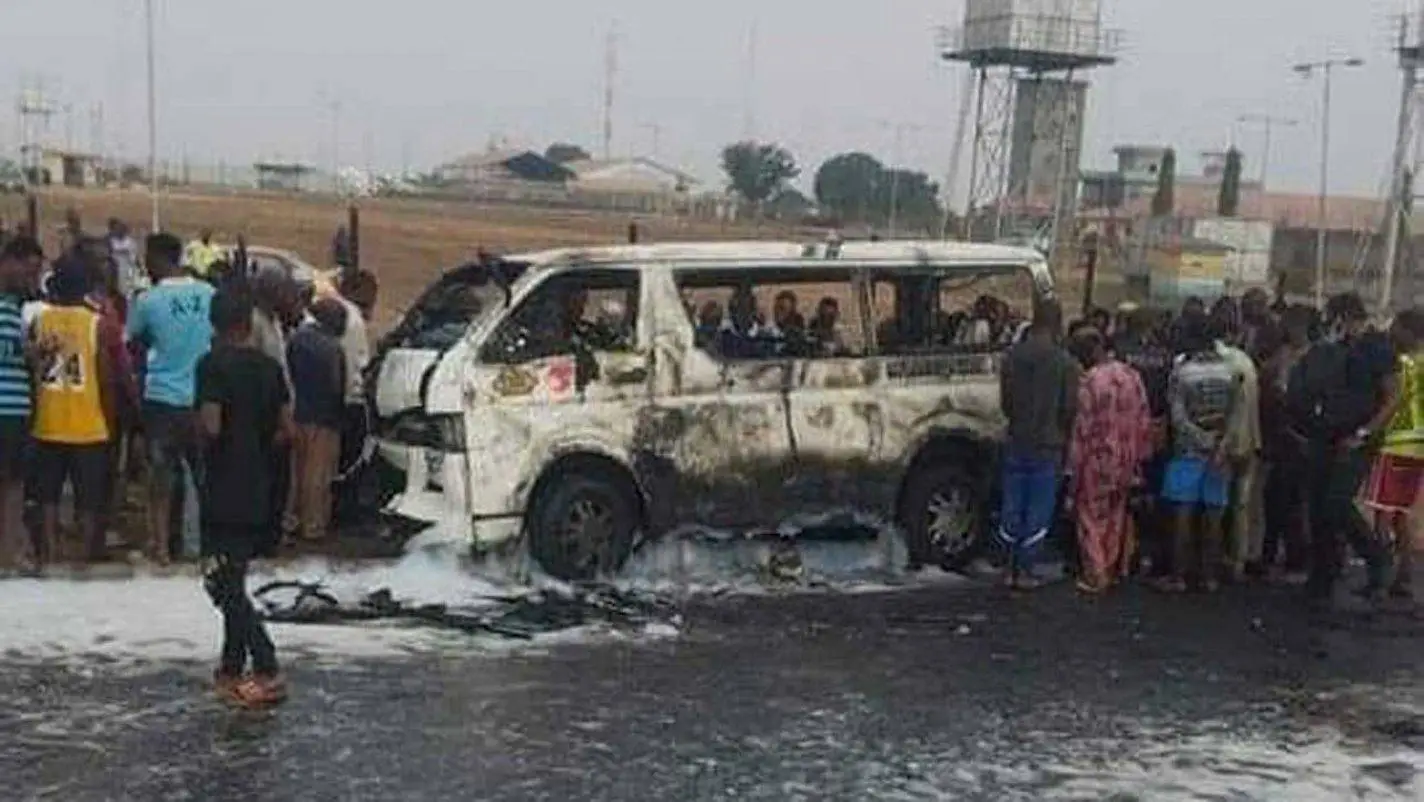
The burnt vehicle. PC: Unknown
Owoade said the inferno after the collision between two vehicles in front of Ilorin airport was a result of Jerry cans loaded with fuel at the back of the bus.
He said that FRSC personnel would arrest motorists caught with the fuel loaded in their vehicles.







